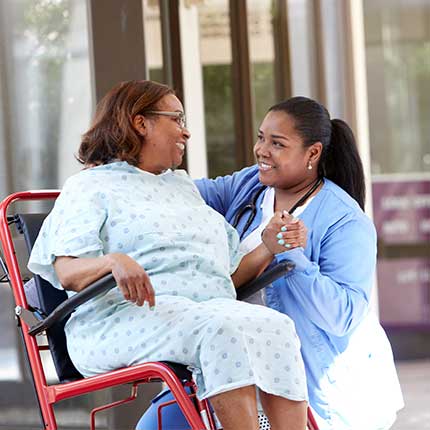Healthy Living
10 Tips for Safe Bike Riding
Riding a bicycle can be fun for kids or the entire family. However, a bike is a vehicle and not a toy, so it’s important to know safety best practices and watch young family members when using a bike. Even if there is no visible external injury, some head injuries from riding a bike may cause serious brain damage.
A study cited by the Centers for Disease Control and Prevention (CDC) found that using helmets while cycling may help reduce facial injuries, traumatic brain injury and other severe head injuries for people of all ages.
Here are 10 cycling safety tips to help keep your family safe:
1. Wear a helmet. Always use a properly fitted helmet and secure it on your head.
2. Inspect your bike. Ensure its parts are secure, the brakes are working and the tires are properly inflated.
3. Be seen. Wear light and bright colors when riding during the daytime to be visible to others. At night, use a headlight and taillight and wear reflective clothing so you can be visible in places with limited lighting.
4. Keep your hands on your bike. Use a backpack or basket to carry your items so your hands can focus on controlling the bike.
5. Stay alert. Always look out for road hazards and avoid them. Don’t wear a headset or earbuds when you ride so you can properly hear traffic and avoid risky situations.
6. Obey traffic laws. Follow all traffic signs, lane markings and other road signals to guide your safety.
7. Be predictable. When riding alongside cars, cycle straight along the bike lane. Don’t weave in and out of other vehicles.
8. Look before turning. Always look behind you before turning left or right.
9. Use hand signals. Learn proper hand signals and use them when signaling your movement to others on the road.
10. Watch for parked vehicles. Leave a 3-foot distance between you and any parked cars to avoid hitting a door that suddenly opens.
If you fall and hit your head, contact emergency services to get a proper assessment of your condition. For more information on staying safe, read about our injury prevention tips.
Sources:
American College of Surgeons
Centers for Disease Control and Prevention
U.S. Department of Transportation



